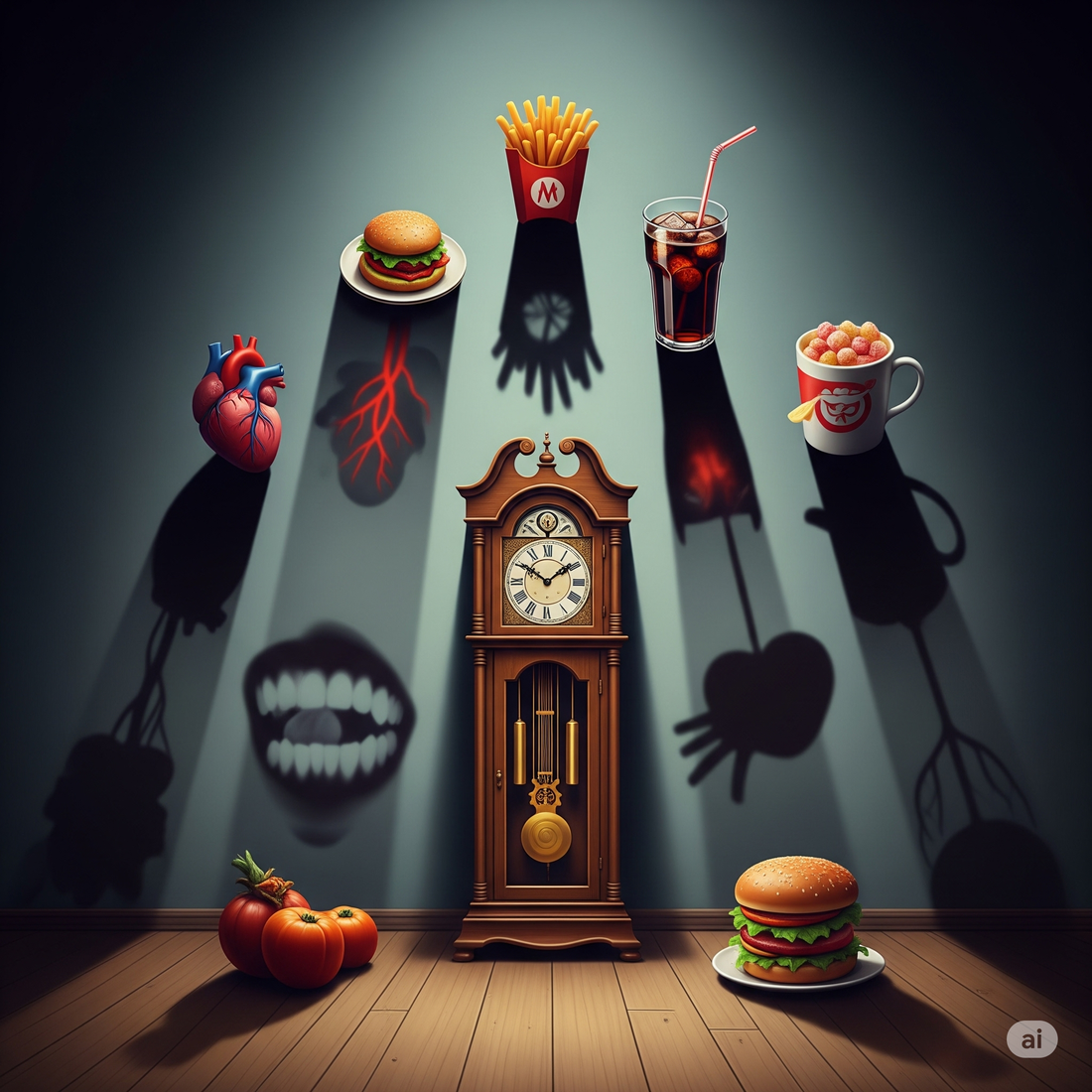
Is Your Late-Night Dinner Hurting Your Health?
Share
The Downside of Dining After Dark
When you eat late, your body is getting ready to wind down for the night. This means your metabolism is slowing, and your digestive system isn't as efficient. Here’s what can happen:
-
Digestive Distress: Eating close to bedtime can rev up stomach acid production. When you lie down, this acid can easily creep back up your esophagus, leading to uncomfortable heartburn and acid reflux. Think of it as a sloshing effect – easier to slosh when you're horizontal! Foods that are fatty, spicy, or fried are especially troublesome because they take longer to digest.
-
Weight Woes: Your body's metabolism naturally slows down at night. Calories consumed late are less likely to be burned off and more likely to be stored as fat. Plus, studies suggest that late eating can make you hungrier the next day and even reduce your overall calorie burn. It can also lead to less healthy food choices – who reaches for a salad at 10 PM when a bag of chips is calling?
-
Blood Sugar Rollercoaster: For everyone, but especially those with diabetes or prediabetes, late-night meals can cause blood sugar spikes and crashes. Your body's ability to handle sugar is less efficient at night, which can contribute to metabolic issues over time.
-
Sleep Sabotage: A heavy meal before bed can make it harder for your body to relax and enter deep, restorative sleep. Indigestion and acid reflux can also wake you up or prevent you from falling asleep in the first place. Your sleep-wake hormones can also get thrown out of whack.
-
Heart Concerns: Some research points to a link between regular late-night eating and a higher risk of heart problems, including increased risk of obesity and unhealthy cholesterol levels.
What to Do If You Must Eat Late
Life happens, and sometimes a late dinner is unavoidable. If you find yourself in this situation, here are some tips to minimize the impact:
- Go Light: Opt for smaller, lighter meals. Aim for something under 250 calories if possible.
- Choose Wisely: Focus on easy-to-digest foods like a small piece of fruit, a handful of nuts, or a tiny portion of lean protein. Steer clear of anything heavy, fatty, spicy, or loaded with sugar.
- Give Yourself Time: Ideally, try to finish eating at least 2-3 hours before you plan to go to bed. This gives your digestive system a head start.
- Listen to Your Body: If you're truly hungry, a small, healthy snack is better than going to bed starving and unable to sleep. Just make it a sensible choice!
While an occasional late dinner is no cause for alarm, making it a regular habit can impact your digestion, weight, blood sugar, and sleep quality. Being mindful of when and what you eat can make a big difference in your overall well-being.